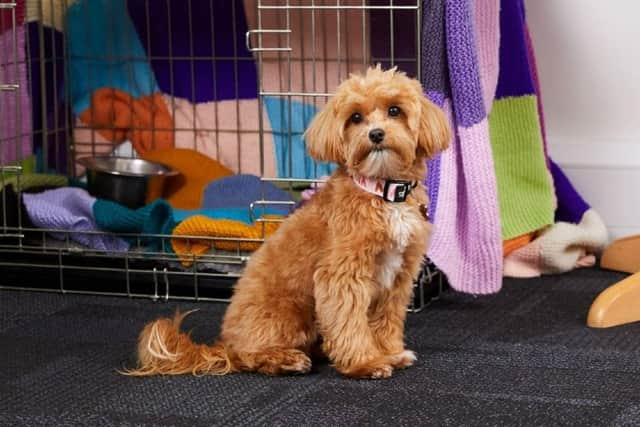How to help your dog cope with fireworks: Dogs Trust Shoreham issues advice for owners
and live on Freeview channel 276
Adel Burnett, Dogs Trust Shoreham Manager, said: “Dogs have approximately four times more sensitive hearing than humans, so the loud cracks and bangs of fireworks can often be a terrifying and confusing experience for them. Fireworks tend to be sudden, unpredictable and bright.
"This combination can be distressing and have a lasting impact on dogs.”
Advertisement
Hide AdAdvertisement
Hide Ad“There are lots of things dog owners can do to help make fireworks less stressful including having a clear plan, ahead of time, to help their dog cope.”


Top tips include:
Adapt your routine – to avoid taking your dog out when fireworks have started, gradually change their routine in the weeks leading up to events. It may be a good idea to start walking them earlier in the day alongside gradually changing their feeding time to allow them time to exercise, eat and toilet before dark. Plan ahead – ensure you are aware of any local firework displays and make arrangements so your dog is not left alone. Prepare their environment in advance, close curtains, turn on the lights, and turn on the television or some music to help block the outside noise. Keep your dog safe – make sure your house and garden are secure. Recognise the needs of your dog – Fireworks can spark varied reactions from dogs, some will appear relaxed and unbothered; others will show signs of anxiety or fear. They may show subtle signs, such as panting or licking their lips, hiding or seeking attention from their human family. Or they may show more obvious signs, such as pacing, barking or toileting in the house. Enable their preferred response by letting your dog do what they feel most comfortable with. Some dogs will benefit from having a safe place to retreat to. Introduce this safe place well in advance and encourage them there by building up positive associations with their new ‘den’. Other dogs will cope best by seeking reassurance, so give them attention and comfort if they seek this out. Some dogs may not seem worried, and it’s best to keep them occupied with their favourite toys or activities to reduce the likelihood of them becoming anxious – experiment before the firework season begins, and slowly introduce them, to find out what they enjoy the most. It is important to remember, fear of fireworks can appear at any time and any age, so it is essential to support your dog throughout their life. Seek guidance from your vet – they can help with advice, refer you to a clinical behaviourist, and may also prescribe medication if deemed necessary to help your dog cope.
The charity also advised anyone planning a firework display at home to consider:
Letting your neighbours know in advance, so they can prepare their dogs. Limiting your display to 30 minutes or less. Opting for quieter, lower decibel fireworks.
Advertisement
Hide AdAdvertisement
Hide AdThe charity also has free sound therapy programmes available, which can help to gradually expose puppies to different noises in a positive way, so they can perceive them as normal.
For more information, visit: www.dogstrust.org.uk/fireworks.